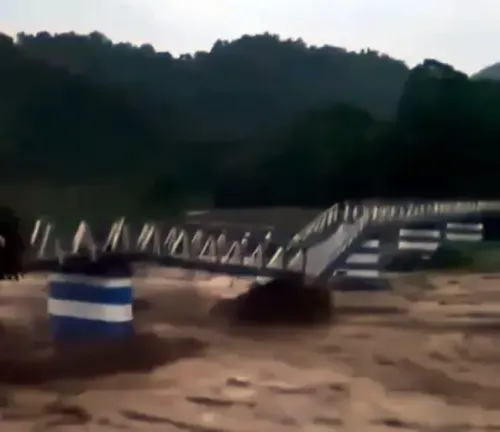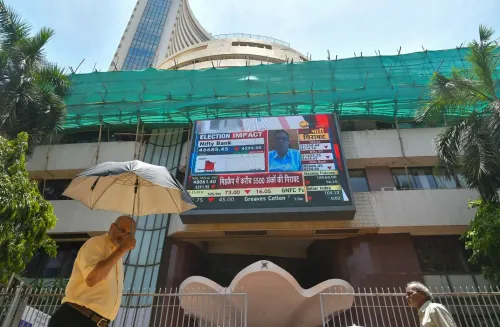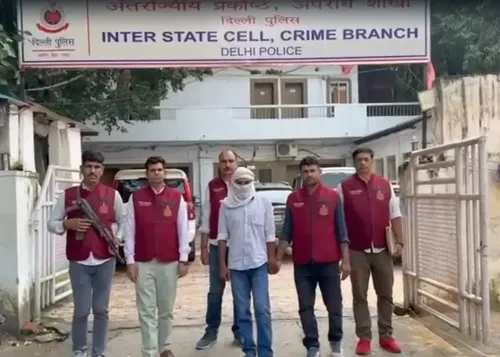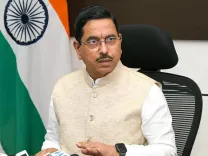Is Greater Bangladesh a Threat? Turkish Supported Saltanat-e-Bangla Targets Indian Territory
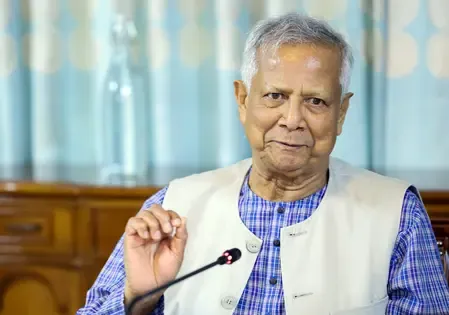
Synopsis
Key Takeaways
- Saltanat-e-Bangla claims parts of India in its 'Greater Bangladesh' map.
- The group is supported by the Turkish Youth Federation.
- It aims to mobilize youth around radical ideologies.
- The map includes significant Indian states and regions.
- Indian authorities are monitoring the group's activities closely.
New Delhi, Aug 1 (NationPress) The Indian government has acknowledged the presence of an Islamic organization in Dhaka known as Saltanat-e-Bangla. According to External Affairs Minister Dr. S. Jaishankar, this group is supported by a Turkish NGO, the Turkish Youth Federation.
This organization has released a map purporting to depict a so-called Greater Bangladesh, which encroaches upon parts of India. This information was shared in a formal reply to Congress MP Randeep Singh Surjewala during a Rajya Sabha session.
Earlier this year, Saltanat-e-Bangla presented its controversial map at an event held within the Teacher-Student Centre of Dhaka University, which has now become the temporary base for this separatist group.
Officials from the Intelligence Bureau have indicated that this group is working to revive radical ideologies and mobilize Bangladeshi youth, especially those who are passionate about the concept of a Greater Bangladesh. The organization has been invoking the legacy of the medieval Bengal Sultanate for some time.
The contentious map released by the group includes the Arakan region of Myanmar and substantial portions of India, comprising West Bengal, Jharkhand, Tripura, Assam, Bihar, Odisha, and additional northeastern states.
Saltanat-e-Bangla derives its name from the independent Muslim-ruled Bengal Sultanate, which existed from 1352 to 1538 CE, covering regions that are now part of Eastern India and Bangladesh. Indian security agencies are particularly wary of the group's connections with Bangladesh's interim government, headed by Muhammad Yunus.
Reports indicate that funding for the organization is associated with Deena Afroz Yunus, the daughter of Muhammad Yunus, who is allegedly the main financial backer of CSS-Bangladesh, an NGO operating out of Beliaghata, Upazila. This NGO has been identified as a logistics and recruitment center for the organization's militant arm, Barawah-e-Bangal, which is responsible for indoctrinating Bangladeshi youth.
The Saltanat-e-Bangla operations are facilitated by the Turkish Youth Federation, which provides both financial and ideological support to the group.
The emergence of this group coincides with significant turmoil in Bangladesh. The Yunus administration has faced criticism for allegedly collaborating with radical Islamic factions. Under his leadership, the Jamaat-e-Islami has gained considerable influence.
Since the ban on Jamaat was lifted after Yunus took office, its members have been allowed to participate in the interim government, exerting considerable influence. Additionally, the current administration has relaxed visa policies for Pakistani officials, further opening avenues for Islamabad.
In light of these developments, Indian intelligence agencies remain vigilant regarding the rise of Saltanat-e-Bangla.
The Indian External Affairs Ministry stated, "The government has taken note of reports concerning an Islamist group in Dhaka named 'Saltanat-e-Bangla', backed by the Turkish NGO 'Turkish Youth Federation', which has issued a map of the so-called 'Greater Bangladesh' that includes parts of India. This map was presented at Dhaka University."

